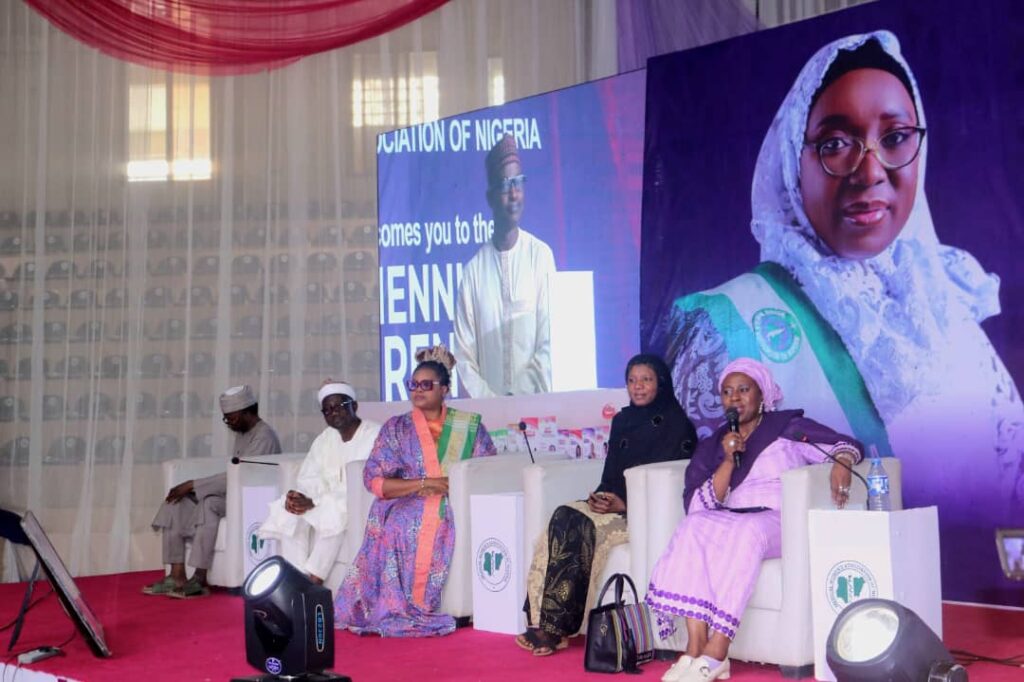The Federal Government has reiterated its commitment to addressing vaccine hesitancy and combating misinformation, disinformation, and malinformation that hinder efforts to eliminate vaccine-preventable diseases in Nigeria.
The Special Adviser to the President on Health, Dr. Salma Ibrahim Anas, made this known at a panel discussion organised by the Development Research and Projects Centre (dRPC) on the impact of vaccine hesitancy and the role of traditional and religious leaders in promoting effective health communication.
ZDLH Gains Legislative Backing With New Lagos Declaration
Dr. Salma explained that the government is working towards achieving 80% equitable coverage of all antigens by 2028, stressing that sustained engagement with traditional and religious leaders remains a key strategy for success.
She urged the leaders to continue their support in combating vaccine hesitancy, noting that the Renewed Hope Agenda of President Bola Ahmed Tinubu is already yielding results through sustained funding and policy realignment aimed at improving the health sector.
Earlier, the Executive Director of dRPC, Dr. Judith-Ann Walker, represented by the Director of Partnerships and Communication, Hassan Aliyu Karofi, described vaccines as a cornerstone of public health in Nigeria.
She highlighted their central role in the Nigeria Health Sector Renewal Investment Initiative (NHSRII) launched in 2023, which prioritises routine immunisation and rapid outbreak response to achieve universal health coverage.
According to her, vaccines have significantly reduced morbidity and mortality, especially through primary healthcare (PHC) centres under the Sector-Wide Approach (SWaP).
She further noted that, the recently introduced Human Papillomavirus (HPV) vaccine for girls aged 9–14 has recorded remarkable success, with 12 million vaccinated to date.
Despite these gains, Dr. Judith expressed concern that vaccine hesitancy remains a major barrier to achieving the 2028 immunisation target.
She attributed this challenge to complacency, convenience, lack of confidence, and the spread of misinformation and disinformation—particularly targeting women, who are primary caregivers and decision-makers for child vaccination.
She emphasised the importance of traditional and religious leaders in reversing this trend, citing successful strategies under initiatives such as the Grand Canada Challenge and the Bill & Melinda Gates-funded Partnership for Family and Child Health, which have reduced vaccine hesitancy in northern Nigeria.
Also speaking, Professor Abdulazeez Mashi of Umaru Musa Yar’adua University, Katsina, stressed that, addressing vaccine hesitancy requires effective health communication that counters misinformation and builds public trust.
He urged stakeholders to prioritise communication strategies that strengthen confidence in vaccines.
Similarly, the outgoing President of the Medical Women’s Association of Nigeria, Professor Rosemary Ogu, cautioned healthcare providers to review their attitudes and practices, noting that their behaviour could either promote confidence or fuel hesitancy.
VaxSocial Unveiled in Kano to Combat Vaccine Hesitancy
She added that service providers themselves need more education on the role they play in addressing the problem.
Other experts on the panel echoed the call for stronger involvement of religious and traditional leaders in both the planning and implementation of health interventions, describing them as crucial allies in the fight against vaccine-preventable diseases.





